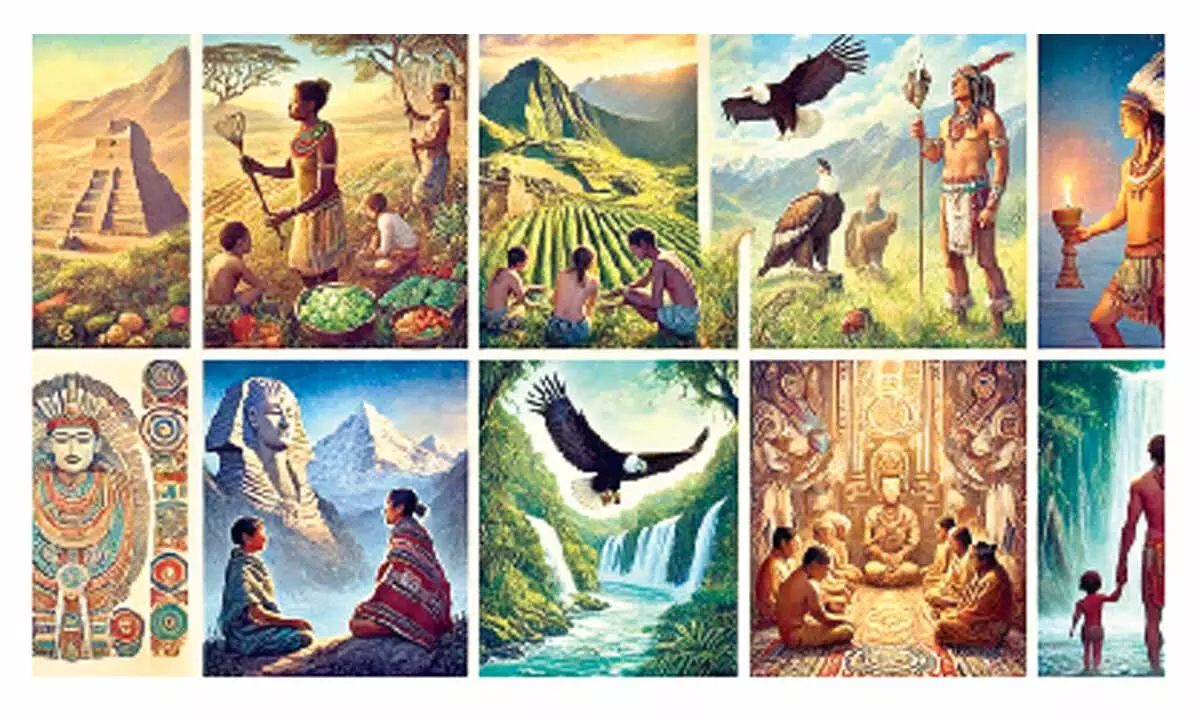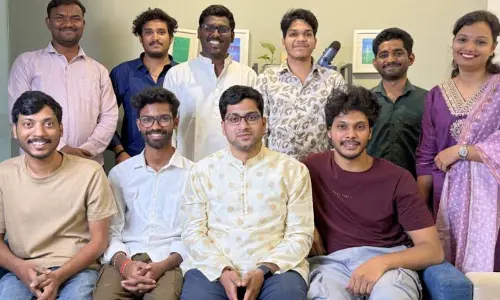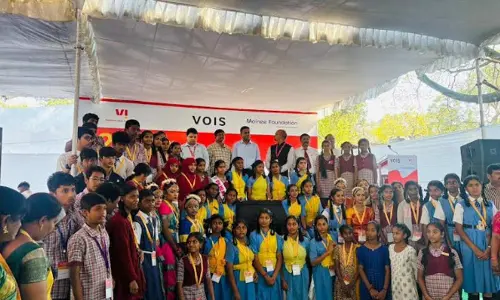Embracing the Wisdom of Ancient Traditions: A Global Perspective

Ancient traditions, rich in wisdom and universal values, offer profound guidance for modern challenges. Prof. Yashwant Pathak’s recent lecture at Sharda University highlighted their relevance in fostering harmony, resilience, and peace
Prof. Yashwant Pathak, Dean of Florida University and founding member of the International Centre for Cultural Studies (ICCS), is an influential scholar bridging the realms of nanoscience, culture, and spirituality. In a recent interaction at Sharda University, Greater Noida, Prof. Pathak delved into the universal principles embedded in ancient traditions. His lecture illuminated how these timeless practices continue to inspire harmony between humanity and nature while fostering cultural resilience and universal peace.
Reverence for Nature in Ancient Traditions
Ancient traditions worldwide share a profound connection with nature. African communities, for instance, emphasise living in harmony with the earth. Their practices, such as refraining from unnecessary ploughing, reflect a commitment to preserving the fertility of the land and respecting its natural rhythms. This worldview is encapsulated in the African philosophy of ‘ubuntu’, meaning “I am because you are.” It underscores the interconnectedness of all beings and the importance of mutual respect and coexistence.
Similarly, the indigenous cultures of South America demonstrate a deep reverence for nature. The Andes, home to 82 ancient temples, are a testament to their spiritual connection with the earth and cosmos. Symbols like the eagle and condor embody the balance and interdependence of life, bridging the spiritual beliefs of North and South American communities.
Migration and Cultural Adaptation
Prof. Pathak highlighted the resilience of traditions amidst migration, particularly during the British colonial period. The ‘Girmitiya’ community, descendants of Indian indentured laborers, carried their cultural heritage to new lands. Despite displacement, they embraced their adopted countries as their own, maintaining traditions such as hand-copying the ‘Tulasi Ramayana’. This fusion of cultural preservation and patriotism exemplifies their enduring spirit.
Migration also fostered a unique bond between the migrants and their adopted lands. For these communities, the land became a nurturing mother, reflecting their reverence for the natural and spiritual world. This perspective resonates with the philosophy of honoring one’s roots while adapting to new environments, ensuring the survival of their heritage.
Universal Peace and Nonviolence
Ancient traditions universally promote peace and coexistence. Nelson Mandela’s philosophy of harmony, rooted in African wisdom, aligns with India’s ‘sarve jana sukhino bhavantu’—the idea of universal happiness. These values, embedded in prayers, rituals, and daily practices, advocate for compassion and nonviolence.
Unlike modern ideologies that have sometimes fueled violence, ancient traditions have never propagated terrorism. Their core belief in interconnectedness and well-being transcends boundaries. Native American practices, for instance, emphasise a direct connection with the divine, often facilitated by serene natural settings like flowing streams. These rituals encourage introspection, unity, and a profound understanding of life’s cyclical nature.
Gender Equality in Ancient Beliefs
Many ancient cultures celebrated gender equality, contrary to patriarchal norms in modern societies. Deities often represented nurturing maternal figures, such as goddesses depicted breastfeeding their children. This reverence for motherhood highlights the central role of women in shaping societies.
The Maori of New Zealand, for example, honor maternal wisdom in their customs. Their mourning practices, which involve not leaving the deceased alone and refraining from cooking for days, reflect a deep respect for community and collective care. These traditions underscore the importance of women as primary mentors and guardians of cultural values.
Linguistic and Spiritual Connections
Prof. Pathak explored the linguistic and spiritual interconnectedness of ancient cultures. The Lithuanian language, for instance, contains 30% Sanskrit words, revealing shared roots and millennia of cultural exchange. Similarly, fire worship, a common ritual across cultures, symbolises transformation, purification, and divine connection.
Zulu traditions in Africa emphasise that every creation has a purpose, echoing the Hindu and Buddhist belief in rebirth and universal oneness. Native American spirituality also advocates for universal well-being through prayers that transcend individual needs and benefit humanity as a whole.
Philosophies for Modern Life
The wisdom of ancient traditions offers valuable lessons for the modern world. The African Zulu philosophy of ‘ubuntu’— “I am here because of you”—teaches mutual respect and interdependence. Similarly, the Hopi tribe’s native passports highlight their commitment to preserving identity while engaging with the global community. These principles, rooted in mentorship and community, remain relevant in today’s interconnected and fast-paced world.
Prof. Pathak also shared a scientific perspective, linking the building blocks of life to the concept of oneness described in the ‘Bhagavad Gita’. According to this philosophy, the universe originates from a single entity, emphasising the interconnected nature of existence.
Preserving Ancient Wisdom
Prof. Pathak’s lecture was a call to action for the younger generation to explore and embrace ancient traditions. These practices, whether from Africa, India, the Americas, or elsewhere, offer solutions to pressing challenges like environmental degradation, social inequality, and cultural alienation.
The rituals of Native Americans, the resilience of ‘Girmitiya’ communities, and the egalitarian philosophies of ancient cultures remind us of the enduring relevance of these traditions. By integrating their principles—harmony with nature, respect for diversity, and universal peace—we can address contemporary issues and build a more compassionate and sustainable future.
A Guide for the Future
As Prof. Pathak aptly stated, “The past is not a relic; it is a guidepost for the future.” Ancient traditions hold the key to fostering harmony between humanity and the natural world, bridging cultural divides, and inspiring a renewed sense of purpose. By revisiting these timeless values, we can draw upon their wisdom to navigate the complexities of modern life and create a world grounded in peace, unity, and respect for life.
(The writer is an Author & Creative Economy Expert)










